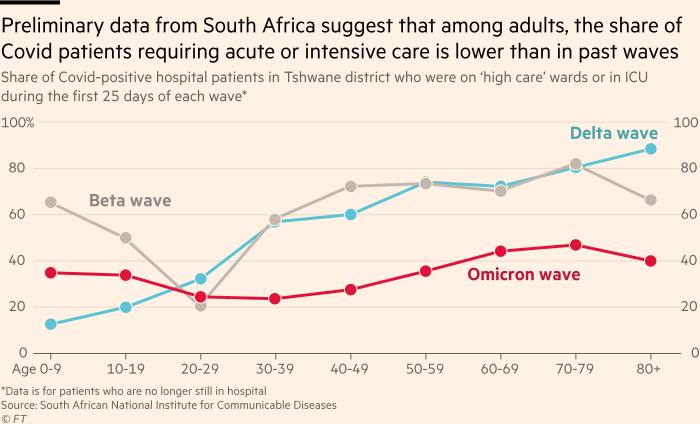Data from the district at the heart of South Africa’s Omicron variant wave suggest that the share of people developing severe disease or dying is markedly lower than during previous coronavirus waves, although officials have cautioned that the findings are preliminary and patterns may shift as the wave spreads.
Data published on Friday by the country’s National Institute For Communicable Diseases show that 31 per cent of Covid-positive patients admitted to hospitals the capital Pretoria over the past 25 days have required specialist care or spent time in ICU, compared to two-thirds of patients during the equivalent period of the second and third waves.
In-hospital death rates are also significantly lower at this stage. Four per cent of Covid patients admitted in the last 25 days have died, compared to 20 per cent during the previous two waves.

Both sets of figures are for patients whose hospital stay has ended, meaning the figures for the current wave will not be revised upwards due to the delay between admission and outcome.
Rates of severe disease and death were lower among patients in their thirties, forties, fifties, sixties, seventies and eighties, suggesting that the pattern of lower severity is not driven by any difference in the age of Covid patients in the Omicron wave compared to other waves.
The findings underscore reports from doctors in Pretoria that the level of care required by most patients on their Covid wards is lower than during past waves.
“It must be noted that severity data has several limitations at the early phase of a wave, where the numbers are small,” Joe Phaahla, South Africa’s health minister said in a briefing on Friday.
“It is early days, but there are promising signs that largely patients, even those who are in hospital, are mild and many of them are incidental,” he added.




















Discussion about this post